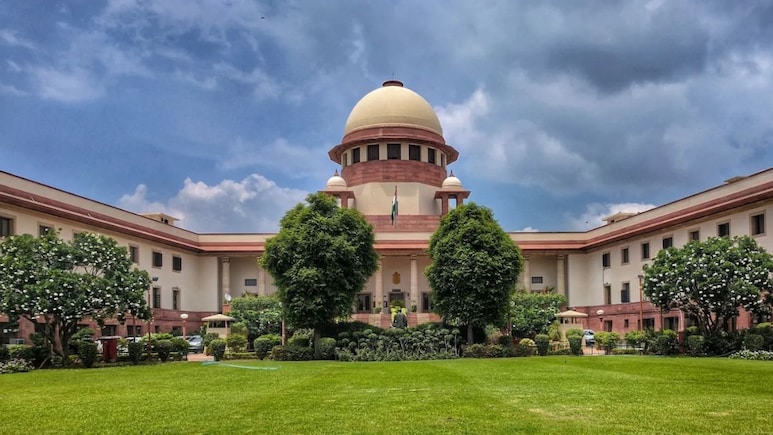
The Supreme Court on Thursday agreed that a clear set of guidelines and a Standard Operating Procedure (SOP) is needed for the nationwide implementation of the Special Intensive Revision (SIR) of electoral rolls. At the same time, the bench expressed concern over the absence of senior lawyers representing major opposition parties, including the Congress and the Rashtriya Janata Dal (RJD), during the crucial hearing.
The observations came from Justice Surya Kant, who noted the apparent lack of interest from political parties in a matter that has major implications for electoral transparency and voter rights. The Association for Democratic Reforms (ADR), which has challenged the Election Commission of India's (ECI) handling of the SIR in Bihar, informed the court that senior advocates Kapil Sibal and Abhishek Manu Singhvi -- both representing opposition parties -- were missing from Thursday's proceedings.
Senior Advocate Gopal Sankaranarayanan, appearing for ADR, urged the bench to proceed with hearing arguments on the constitutional validity of the SIR exercise. "When we started, it was a cricket team of lawyers against SIR. Now, the political parties have vanished as elections approach," he said, prompting some remarks from the bench.
He further clarified that the lawyers currently present before the court were not representing any political parties. "We are here for citizens. We don't associate with any political parties. We only want the court to examine the constitutionality of the SIR exercise conducted by the Election Commission," he said, referring also to advocates Prashant Bhushan and Vrinda Grover, who are part of the petitioners' legal team.
Justice Surya Kant responded, "We know, we have all seen how these political parties have responded to the court's appeal to assist deleted voters," in an apparent rebuke of the opposition's lack of follow-through.
During the hearing, the Supreme Court also took note of submissions regarding the alleged lack of transparency and incomplete voter data. It observed that the Election Commission "knows its responsibility" and is legally bound to publish the final electoral rolls after completing all additions and deletions, while ensuring that the process remains transparent and constitutionally sound.
"And in case it does not do so, the proceedings are still pending in this court," Justice Kant told the petitioners, as the ECI informed the bench that it would publish the final voter list by 17 October.
At the start of the hearing, Advocate Prashant Bhushan addressed the court on an affidavit he had previously filed, which had sparked controversy. "After the last hearing, there was a hue and cry about an affidavit tendered by me. We have now verified it. All details of voters are correct," he said.
Bhushan had earlier submitted a list of 135 voters allegedly deleted from Bihar's electoral rolls without notice. The Supreme Court had at that time directed the ECI to respond to his affidavit and asked the Bihar State Legal Services Authority to assist deleted voters in filing appeals, even if they had not received formal deletion notices.
When Bhushan reiterated on Thursday that all names on his list were verified, Justice Surya Kant remarked, "Anything which does not impact the merits, we do not take into consideration."
At this stage, Senior Advocate Rakesh Dwivedi, representing the ECI, interjected, saying, "We have filed an affidavit an hour back."
In its latest submission, the Election Commission rejected ADR's claim that there had been a "disproportionate exclusion of Muslims" during the SIR exercise in Bihar. The ECI said the petitioners' conclusions were based on "name-recognition software," the accuracy of which was "doubtful."
The Commission described the claim of disproportionate exclusion as a "communal approach" that should be "deprecated," adding that its electoral database does not contain any field indicating a voter's religion.
The bench has now directed both the ECI and the petitioners to file additional affidavits before the next hearing, which is expected in November. The Supreme Court is likely to take up arguments on the legality and constitutionality of the SIR exercise in detail at that time.
Previously, the court had observed prima facie that the SIR process appeared to be lawful, but noted the need for uniform procedural safeguards across states.
The bench also clarified that if any urgent issues arise before the next scheduled hearing, the petitioners may approach the court for immediate intervention prior to November 4.
Track Latest News Live on NDTV.com and get news updates from India and around the world

